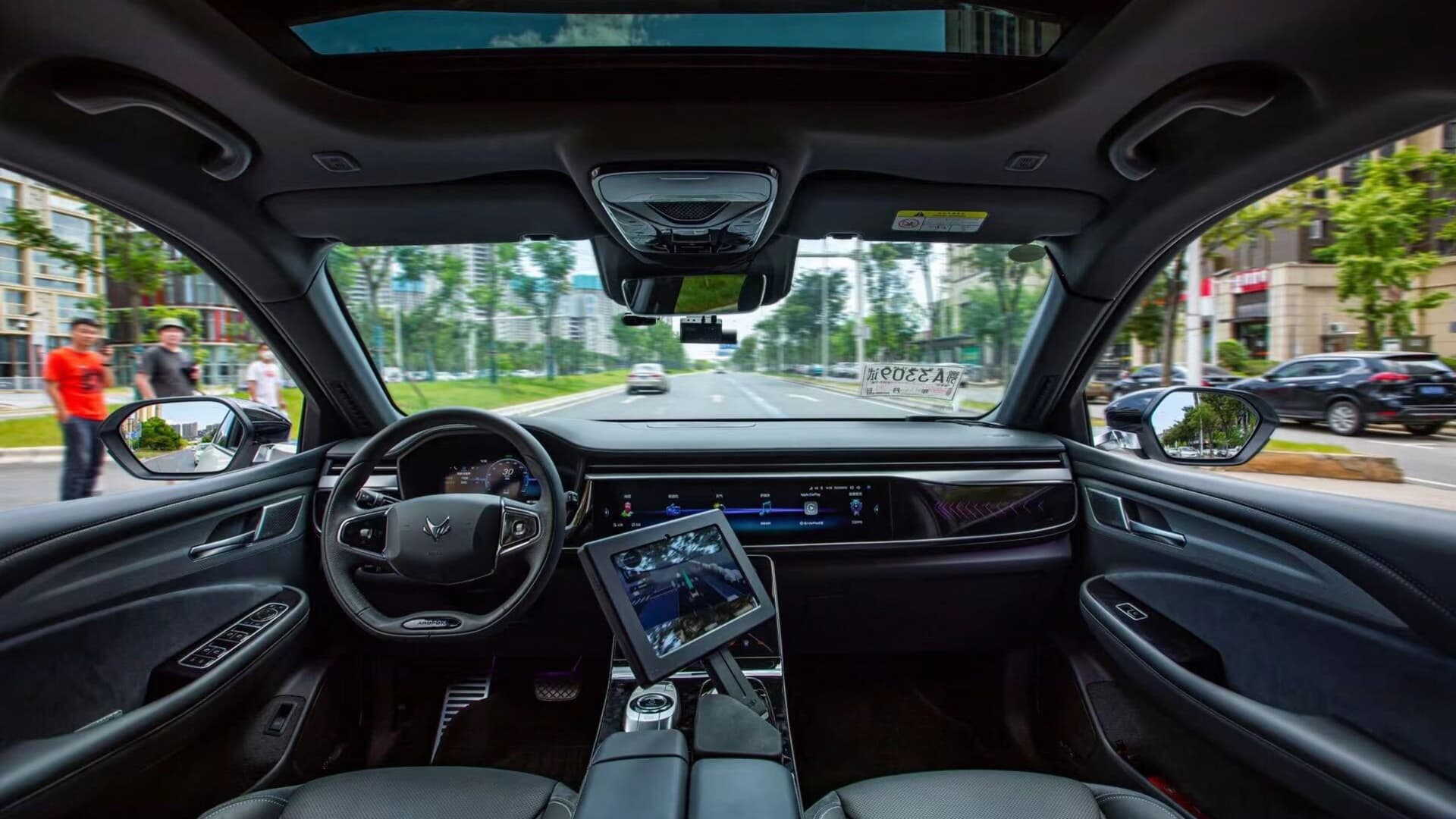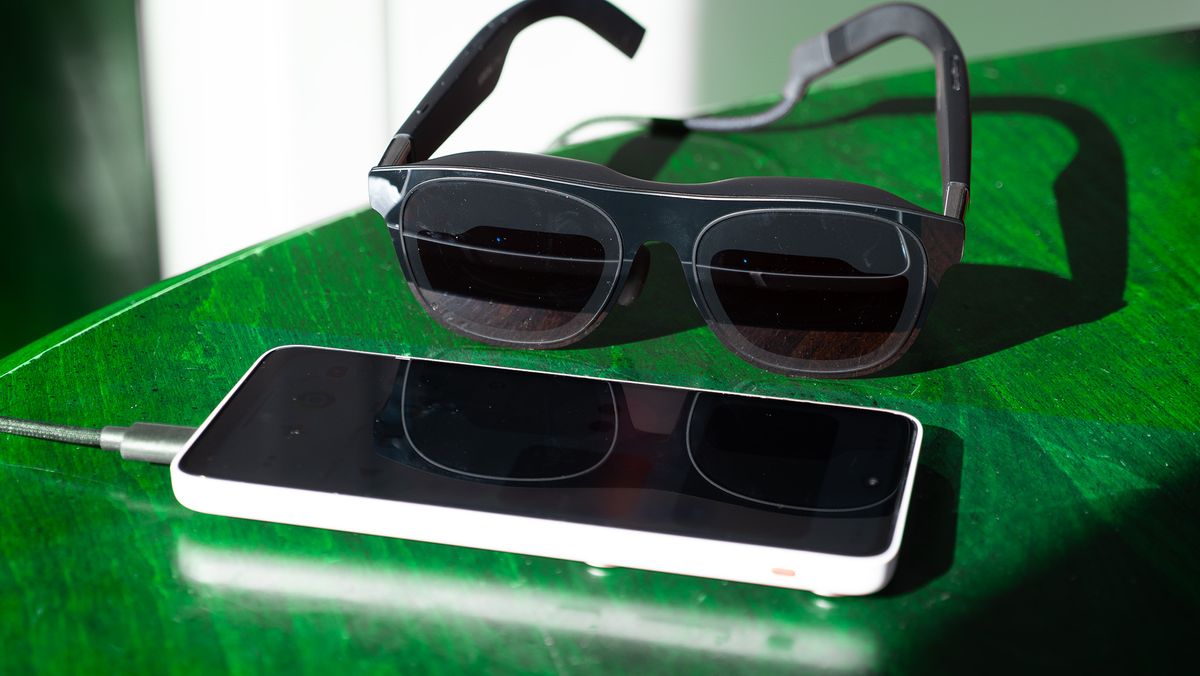Baidu’s Apollo Go robotaxi, on the right, operates in the Yizhuang suburban district of Beijing alongside Pony.ai’s version. The two vehicles are pictured here in November 2021 shortly after Beijing allowed the companies to charge fares.
Vcg | Visual China Group | Getty Images
BEIJING — China’s capital city is taking swift steps to allow robotaxi businesses to grow.
As of Tuesday, the suburban Beijing city district of Yizhuang is officially letting local robotaxi operators — primarily Baidu and startup Pony.ai — charge fares for fully autonomous taxis, with no human staff inside.
That fully eliminates the cost of a driver. Previously, commercial public-facing robotaxis were required to have an employee to sit inside with the passenger. Yizhuang district is about half an hour’s drive from downtown Beijing and is home to corporations such as JD.com.
More approvals for robotaxi operations in the city are coming, said Ning Zhang, vice president at Pony.ai and head of its Beijing research and development center.
“We have very high confidence … maybe only in three years, our full driverless vehicles are going to be running over the whole Beijing city,” he said in an interview with CNBC on Monday.
Citing conversations with Beijing’s mayor, Zhang said that by the end of the year, the city aims to expand robotaxi testing areas to Daxing International Airport and around one train station.
In July, Beijing Mayor Yin Yong met separately with Pony.ai, Alibaba and Xiaomi to encourage their work in connected cars, artificial intelligence and other advanced tech. That’s according to a state media report republished by Pony.ai on its official WeChat account.
The city has also previously announced general plans to increase the testing area for robotaxis.
Less than two years ago, in November 2021, Beijing city allowed the robotaxi operators to collect fares for public-facing rides, a first step toward eliminating the cost of the driver. People can book highly subsidized robotaxi rides from Baidu and Pony.ai in Yizhuang district via the companies’ apps.
Out of more than 200 robotaxis that Pony.ai operates in the region, only about ten are currently fully driverless, Zhang said. He noted that Beijing city considers seven factors in a phased process of allowing public robotaxi operation, including which seat the safety driver is sitting in and whether the car is being used for testing or for commercial operation.
After initial testing, Zhang expects fully driverless robotaxis could operate around Daxing airport next year.
Beijing city did not immediately respond to a CNBC request for comment. Baidu did not share how many fully driverless robotaxis it could operate as of the announcement.
Robotaxi safety
In the U.S., San Francisco has been one of the leading cities testing robotaxis. In August, California state authorities said Alphabet’s Waymo and General Motors’ Cruise could offer paid robotaxi services in San Francisco and carry passengers throughout the city, 24 hours a day.
Shortly after, the California Department of Motor Vehicles said Cruise would have to reduce its robotaxi fleet by 50% in San Francisco. The company’s self-driving vehicles were recently involved in multiple crashes.
Pony.ai’s Zhang claimed the startup has never had any fully driverless public-facing robotaxi accidents in China, and that it has the best safety record in the world.
When asked about the safety record of other robotaxi operators in China, Zhang said he could not share details but said competitors have had accidents.
When asked about its robotaxi safety record in July, a representative for Baidu referred CNBC to a report that did not provide much clarity on the issue.
Beijing Daxing International Airport lies south of downtown Beijing, designated by the yellow star, with the Yizhuang area near the “G2” marker closest to downtown.
Google Maps
Building a safety track record that supports further government permits for robotaxi operations relies heavily on data.
Pony.ai’s Zhang said the company cleans its data by removing sensitive information such as vehicle license plate numbers and data related to the identity of a person — including erasure of faces from videos.
He said only a limited group of people have access to sensitive data and that China data stays in China, while any U.S. data stays in the U.S.
Pony.ai claims it has a valuation of $8.5 billion as of March 2022. Zhang said the company aims to break even by 2025.
Chinese tech giant Baidu operates robotaxis, branded Apollo Go, in other cities in China and claims to have run more than 3.3 million rides.
In June, the tech giant said it received approval to operate robotaxis without staff in a suburb of Shenzhen. That followed similar approval in August 2022 to remove human staff in some robotaxis in parts of Wuhan and Chongqing.
Pony.ai also operates robotaxis in Guangzhou, Shenzhen and Shanghai, Zhang said.
— CNBC’s Kif Leswing and Lora Kolodny contributed to this story.





















Discussion about this post